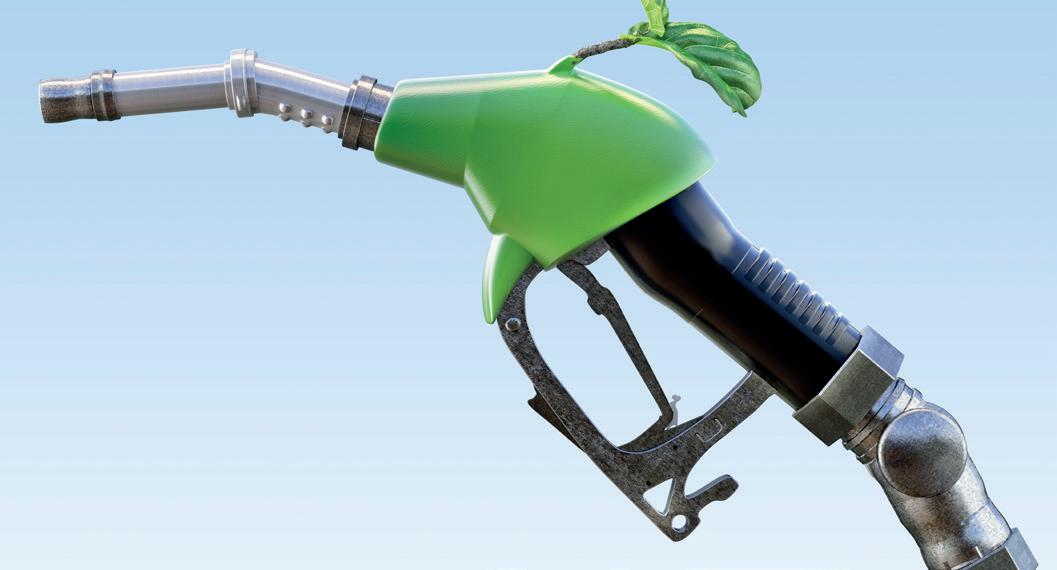
4 minute read
Sharp rise in low sulphur fuel
IN BRIEF
PANAMA: The International Chamber of Shipping (ICS) says ships may face 30% higher costs to pass through the Panama Canal once new charges and tolls are taken into account, Clean Shipping International reported on 13 February. Ships passing through the canal from 15 February 2020 would face a ‘freshwater charge’, the Panama Canal Authority said. Vessels over 38.1m long would incur a set charge of US$10,000 with a variable surcharge based on the level of the Gatun Lake at the time of transit.
From 1 April, significant changes to the canal’s tolls were also due to come into effect.
Sharp rise in low sulphur fuel sales at Rotterdam
The Port of Rotterdam has reported a sharp rise in demand for very low sulphur fuel oil (VLSF0) and biofuel bunkers as a result of new global sulphur emission regulations which came into force on 1 January.
In the last quarter of 2019, sales of low sulphur bunker oil with a maximum sulphur content of 0.5% (VLSFO) showed a large increase and totalled 48% of all bunkers sold, the port said. In December alone, 62% of the fuel sold was VLSFO.
The International Maritime Organization’s new global sulphur regulation aims to reduce the amount of sulphur dioxide emissions from ships. Since 1 January, the cap on sulphur emissions has been reduced from 3.5% to 0.5% in areas outside current emission control areas (Baltic Sea, North Sea, North America and US Caribbean), where the limit is even lower at 0.1%.
The Port of Rotterdam said sales of bunkers with less than 0.1% sulphur content (ultra low sulphur fuel oil) comprised 13% of sales in the last quarter of 2019. In addition to increased sales of VLSFO, there was also a rise in sales of liquefied natural gas (LNG) bunkers, tripling from 9,483 tonnes to 31,944 tonnes.
“For the first time, the sale of biofuel bunkers – bunker fuel to which a certain percentage of biofuel has been added – is also clearly visible in figures.
“During 2019, 2% of sales of fuel oil and 0.5% of distillates (marine gas oil - MGO - and marine diesel oil - MDO) involved biofuel bunkers. Sales of biofuel bunkers showed an increase, particularly in the fourth quarter.”
The percentage of biofuel in bunkers varied between 5-50%, with 20-30% the most common, the port said, adding that the bulk of bunkers sold in Rotterdam was for intercontinental transport.
Diamond Green Diesel strikes lease deal with IMTT US renderer Darling Ingredients announced on 25 February that its Diamond Green Diesel (DGD) joint venture with Valero Energy had entered into a long-term lease agreement with bulk liquid handler International-Matex Tank Terminal (IMTT).
“The agreement will allow DGD access and use of the St Rose IMTT terminal as a logistics hub for DGD’s existing and expanding renewable diesel facility in Norco, Louisiana,” Darling Ingredients said.
As part of the agreement, IMTT will build two 8km long pipelines connecting its St Rose terminal with DGD’s Norco facility. IMTT will also repurpose approximately 790,000 barrels of existing storage capacity from heavy and residual petroleum service to storage of renewable diesel feedstock and finished product. The work is expected to be completed before the end of 2021, coinciding with the planned start-up of DGD’s current 400M gallon (1.52M tonne) expansion project. “What is so often overlooked when discussing the critical success components of renewable diesel economics is the supply chain, which is complicated and costly to manage,” said John Bullock, executive vice president at Darling Ingredients. “This agreement allows us to economically source renewable diesel feedstock while supplying the best markets for our renewable diesel and naphtha.” Darling Ingredients collects and processes animal by-products such as edible fats and yellow grease, as well as used cooking oil, into food, fuel, pet food, pharmaceutical and fertiliser ingredients.
IMTT handles and stores bulk liquid products through its ownership and operation of 19 terminals in North America.
Queensland Bulk Terminals now under full Wilmar ownership Leading Asian agribusiness group Wilmar International has become the sole owner of Australia-based Wilmar Gavilon (WG) and Queensland Bulk Terminals (QBT).
Wilmar acquired the 50% interest in WG which it did not already own for US$36.6M from Gavilon Pty Ltd, it said on 28 February. “The acquisition was undertaken as Wilmar believes that significant synergies can be achieved with the integration of WG’s operations into Wilmar’s businesses in Australia and New Zealand.”
WG sources, trades, markets and distributes agricultural commodities including grains, oils, meals and fats. Once the deal is completed, WG will be a wholly-owned subsidiary of Wilmar known as Wilmar Trading (Australia) Pty Ltd, along with WG subsidiary, QBT.
QBT handles and stores a range of grains and liquids including maize and tallow. It has more than 85,000 tonnes of bulk grain storage, over 10,000 tonnes of bulk liquid storage, two grain receiving stations, a container packing facility and a ship loader.
Wilmar’s global activities include oil palm cultivation; oilseed crushing; edible oil refining; production of speciality fats, oleochemicals and biodiesel; as well as rice and flour milling and sugar milling and refining.










